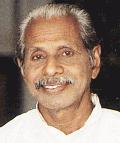Skip to main content
Monologue

- Monologue - was one of the favored verse forms in the Victorian Age in British Literature.
- Monologue is a Lyric poem, in which a single person, not generally the poet, speaks in a critical situation in his life and career.
- The speaker addresses a silent listener revealing his personality in the context of a dramatic situation.
- The speaker reveals his own character and also provides information about the person he is addressing, the time, the place, the main events and any other personalities or characters involved in that situation.
- It is dramatic - monologue.
- It expresses the unconscious thoughts of a speaker.
- Ex: Soliloquies in Shakespeare's Macbeth and Hamlet.
- Technique of monologue evolves in the Ritualistic Origin of drama in Greece.
- Monologues emphasize both the personal and potentially ironic elements in poetry.
- Monologues have been used right from the days of Chaucer to the present day.
- Elizabethan dramatists such as Shakespeare and Marlowe used monologues in their plays.
- John Milton too adopted this device in poems.
- The traditional subjective tone of the poets voice is combined with a new element of 'Impersonalisation' and 'Irony'.
- Robert Browning makes use of this form most effective in the post - Romantic period.
- He called his monologues "Dramatic Lyrics".
- The Dramatic Monologue is a Vehicle of Poetic Communication even in Modern American Poetry.
- The use of this form enables a poet to attain impersonality in art.







.jpg)
Comments
Post a Comment